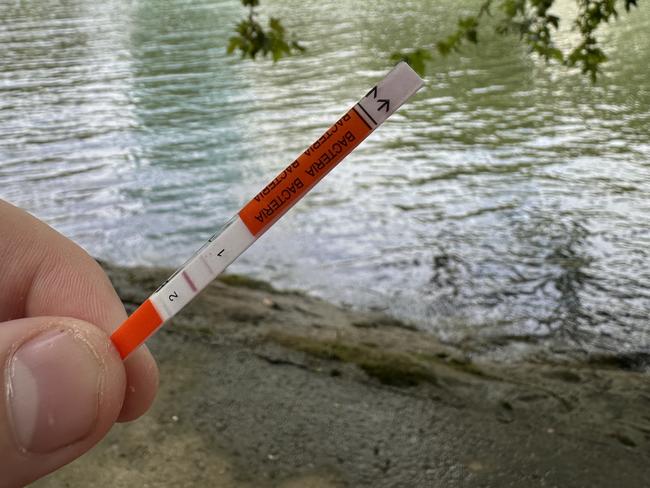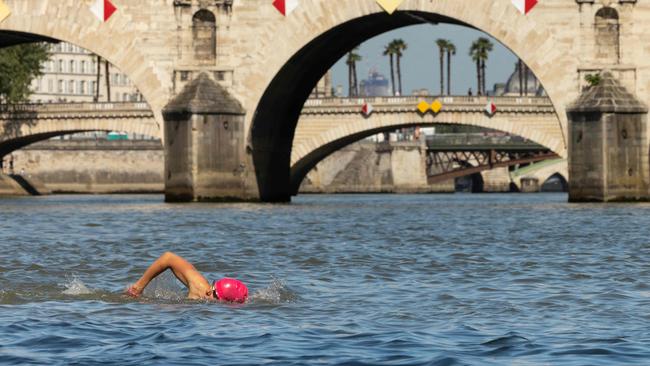2024 Paris Olympics: Exclusive water test detects faeces in Seine
The 2024 Olympics might feature the Eiffel Tower, La Concorde and Roland Garros - but an exclusive test has revealed a gross find in the Seine.
It’s the faint red line that proves once and for all - Brisbane’s better than Paris.
The 2024 Olympic Games might feature the Eiffel Tower, La Concorde and Roland Garros - but Brisbane won’t force athletes to swim through hints of faeces and salmonella in 2032.
Testing by News Corp Australia of the River Seine reveals traces of E. Coli and salmonella bacteria remain just days before athletes dive in for marathon swimming and triathlon.
Paris 2024 organisers have spent some $2.4bn since 2015 to clean the Seine ahead of the Olympic Games - but doubts remain about whether the fluctuating water quality will reach acceptable levels before next week.
News Corp testing in Paris found more than 1000 colony-forming units per 100mL in the Seine - above the 900 units the World Triathlon Federation deems safe for competitions.

Rain across Paris in the days leading into the opening ceremony has added to fears industrial sewage and sanitary overflows will again pour into the fast-flowing river.
World Aquatics has previously insisted it would not hesitate to relocate races for athlete safety.
Chaos in Paris compares to calm in Brisbane, where testing under the Story Bridge revealed - while it remains brown - no trace of E. Coli or salmonella could be found.
It means organisers of Brisbane’s 2032 Olympic Games are spoiled for choice when it comes to the marathon swimming and triathlon venues.

The Gold Coast’s Broadwater Parklands is slated to hold both events, but the comparative cleanliness of the Brisbane River offers a second option.
Associate Professor Helen Stratton, a water expert from Griffith University, said strong work meant it was possible to facilitate swimming in the Brisbane River by 2032.
“Of course it is… some of that has been done,” she said.
“There’s work going towards having it swimmable by 2032.
“We’re not at ground zero.”
Associate Prof Stratton said the Seine had repeatedly shown traces of “faecal contamination” that indicated viruses and diseases were present.
Questioned whether she’d be joining athletes and diving in, the expert was unequivocal.
“Um, no,” she said.
Ms Stratton noted previous results showed E. Coli levels were 2000 parts per 100mL - ten times safe levels.
“On any guideline, in any jurisdiction, that’s above the trigger point for swimming,” she said.
“As a microbiologist... I’d be saying it’s not safe.”
However, if the event does go ahead, Associate Prof Stratton offered simple advice for athletes to stay healthy.
“Try not to swallow the water - most of the pathogens there will be intestinal pathogens in that you have to ingest them for an infection to be established,” she said.



To join the conversation, please log in. Don't have an account? Register
Join the conversation, you are commenting as Logout